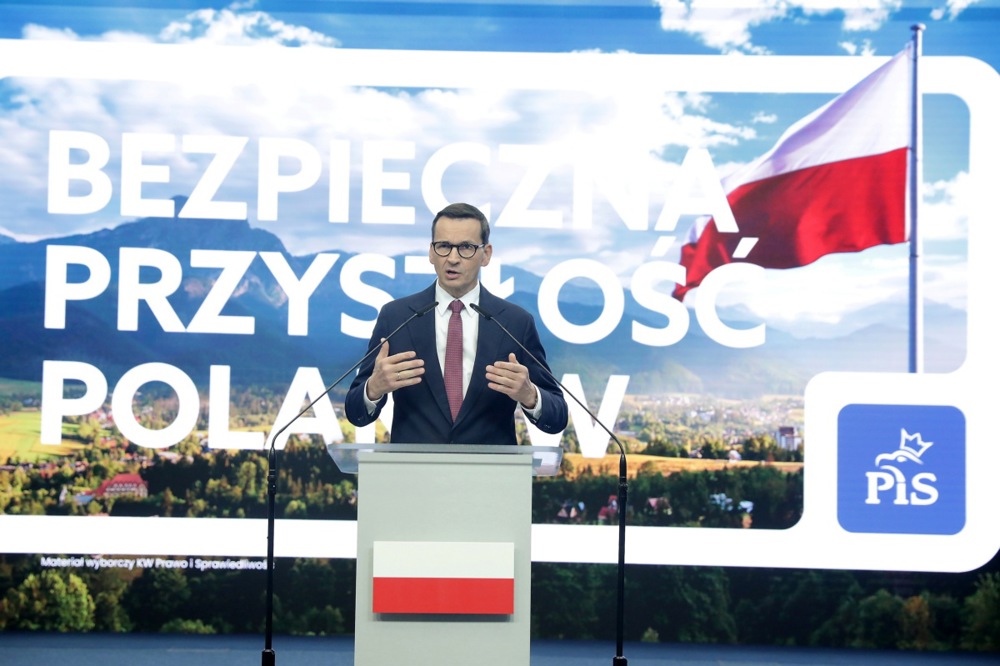In an apparent bid to exploit tensions within the ruling coalition led by Polish Prime Minister Donald Tusk, the leader of the opposition Conservatives (PiS) leader Jarosław Kaczyński said he would be willing to support softening Poland’s near-total abortion ban introduced during the last PiS government in 2020.
The ruling coalition is split on the issue with Tusk’s Civic Coalition and The Left party wanting abortion on demand until the end of the 12th week of pregnancy.
The Third Way alliance, made up of the centrist Poland 2050 and the centre-right PSL, wants a return to the previous abortion compromise that allowed terminations only when it could be proved the foetus had been damaged. It will not agree to any further liberalisation unless a referendum is held on the matter.
Kaczynski has warned that any alteration in the legislation will require a change in the Constitution. He said that was because the constitutional court (TK) ruled in 2020 the compromise on abortions being available on the grounds of foetal damage was inconsistent with constitutional provisions on the sanctity of life.
He remains opposed to any referendum that could lead to more far-reaching legislation.
That standpoint illustrates an apparent shift by Kaczyński, who had accepted the Catholic Church’s position on a almost total ban on terminations, and he now seems allied with former PiS prime minister Mateusz Morawiecki.
Following last autumn’s parliamentary election, Morawiecki has consistently argued that PiS should support a return to the abortion compromise being proposed by Third Way, claiming it worked well between the early 1990s and 2020.
On April 12 Parliament decided to allow both abortion on demand and a return to the pre-2020 compromise proposals to go through to the committee stage, although it was the compromise position that had most support, from several PiS MPs and all coalition members.
The constitutional court ruling in 2020, which removed the right to abortions in cases of foetal damage, led to mass protests on Polish streets as 90 per cent of all abortions had been made on those grounds. The remaining 10 per cent remain legal in situations where a woman’s life is at risk or when the pregnancy is the result of a criminal act such as rape or incest.
Kaczynski said after the April 12 votes: “I believe that if the [abortion] compromise from 1993 were included in the Constitution, then there would be something to talk about.
“If it were possible, although it is really very difficult, maybe there would be some solution that would calm the situation.
“At the same time, a law that would have to supplement it would clarify the conditions for abortions to take place,” he concluded
In order to change the Constitution, a two-thirds majority in Parliament is required, meaning it would need the support of large parts of the current ruling coalition as well as the PiS.
Opinion polls show there is strong support for removing the current near-total ban. Poles are, though, divided over whether there should be a return to the pre-2021 law or the introduction of abortion on demand.
One of PiS’s rising stars, former education minister Przemysław Czarnek, has been consistently arguing that the party must enter into dialogue not only with the right-wing Confederation party but also the PSL, which he sees as sharing many of the PiS’ socially conservative views.
The party’s failure to find common ground with both the Confederation and the PSL cost the party power at the last parliamentary election. PiS and the Confederation together have a majority in Parliament but the PSL, together with the rest of Third Way, have chosen to side with Tusk and The Left.
Still, the PiS hopes that the PSL will be willing to enter into discussions with it and many say this may be part of the reasoning for Kaczynski’s apparent willingness to shift his party’s position on abortion.





